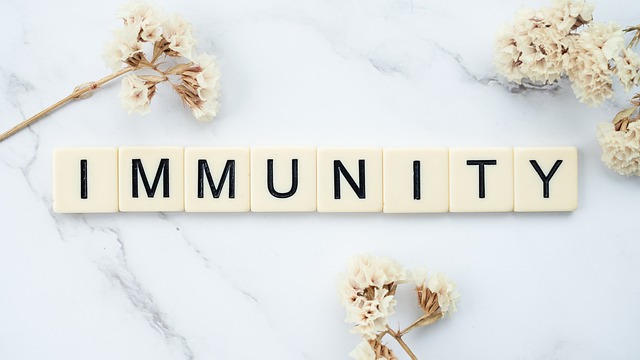Holistic health approaches mental health support by treating mind and body as interconnected systems. This involves addressing root causes, personalizing strategies like mindfulness and physical activity, and focusing on nutrition for brain function and emotional stability. Practices such as yoga, tai chi, acupuncture, and nutrition therapy combine traditional wisdom with modern science to enhance mental well-being through movement, mindfulness, and nature therapy. By cultivating balance, resilience, and self-care, holistic mental health support offers a comprehensive, natural, and effective method for managing stress and emotions.
In today’s fast-paced world, holistic approaches to mental and physical health are more crucial than ever. This comprehensive guide explores united mind-body strategies to enhance overall well-being. From understanding the interconnectedness of mental and physical health to discovering powerful practices like nutrition, mindfulness, and integrative therapies, this article provides practical tools for optimal mental health support. Uncover how holistic care can revolutionize your journey towards a healthier, happier you.
- Understanding Holistic Health: Uniting Mind and Body
- Nutrition and Mental Well-being: The Foundation of Holistic Care
- Movement and Mindfulness: Activating the Healing Power Within
- Integrative Practices for Optimal Mental Health Support
Understanding Holistic Health: Uniting Mind and Body

Holistic health is a concept that recognizes the deep connection between our mental and physical well-being. It understands that treating either in isolation isn’t sufficient; instead, it takes a unified approach to foster optimal health. This means addressing not just the symptoms but also the underlying causes of illness or unhappiness. By considering both the mind and body as intricately linked systems, holistic practices offer a more comprehensive strategy for mental health support.
This integration involves tailoring strategies to an individual’s unique needs. It could mean incorporating mindfulness practices like meditation to reduce stress and anxiety, alongside physical activities such as yoga or tai chi that stimulate blood flow and release endorphins, promoting both mental clarity and muscle strength. Thus, holistic approaches provide a natural and balanced way to enhance overall health by nurturing the mind-body connection.
Nutrition and Mental Well-being: The Foundation of Holistic Care

Nutrition plays a pivotal role in holistic mental health support, serving as the foundation upon which our overall well-being is built. The foods we consume have a profound impact on our brain function and emotional state. A diet rich in whole foods, including fruits, vegetables, lean proteins, and healthy fats, provides essential nutrients that fuel our brains and bodies. These nutrients are vital for maintaining stable moods, improving cognitive function, and enhancing resilience to stress.
By adopting nutrient-dense eating habits, individuals can create a solid foundation for mental health support. This approach goes beyond simply treating symptoms; it focuses on fostering a sense of balance and harmony within the body and mind. Holistic nutrition recognizes that what we eat is not just fuel but a form of self-care, influencing our ability to manage stress, regulate emotions, and promote overall mental well-being.
Movement and Mindfulness: Activating the Healing Power Within

Incorporating movement and mindfulness practices is a powerful holistic approach to enhance both mental and physical health. Regular physical activity acts as a natural mood booster, reducing stress hormones and promoting the release of endorphins, which can significantly improve mental health support. Activities like yoga, tai chi, or even a brisk walk in nature combine movement with breath control and mindfulness, fostering a deeper connection between the mind and body.
Mindfulness practices encourage individuals to be present in the moment, observing their thoughts and sensations without judgment. This heightened awareness can help reduce anxiety, improve focus, and enhance overall well-being. By activating both the healing powers of movement and the calming effects of mindfulness, individuals can cultivate a sense of balance, resilience, and self-care, thereby strengthening their mental health support system.
Integrative Practices for Optimal Mental Health Support

In today’s fast-paced world, holistic approaches to mental health support have gained significant traction as people seek balanced and inclusive ways to navigate their well-being. Integrative practices, encompassing a diverse range of techniques, offer a comprehensive strategy for enhancing mental health. From mindfulness meditation and yoga to acupuncture and nutrition therapy, these methods cater to the interconnectedness of mind, body, and spirit. By combining traditional wisdom with modern science, individuals can unlock profound benefits that promote resilience and overall mental clarity.
Mental health support through holistic practices provides a nurturing environment where people can explore and address their emotional, physical, and spiritual needs. For instance, activities like nature therapy and artistic expression allow individuals to reconnect with themselves, fostering a sense of inner peace and purpose. This multifaceted approach ensures that every aspect of an individual’s life is considered, leading to sustainable improvements in mental health and overall quality of life.
Holistic approaches to mental and physical health integration offer a transformative path to well-being. By intertwining nutrition, movement, mindfulness, and integrative practices, individuals can unlock their innate healing potential. Adopting these holistic strategies not only enhances physical vitality but also provides robust mental health support, fostering a balanced and fulfilling life. Embrace these techniques to cultivate resilience, promote self-care, and achieve optimal well-being.
